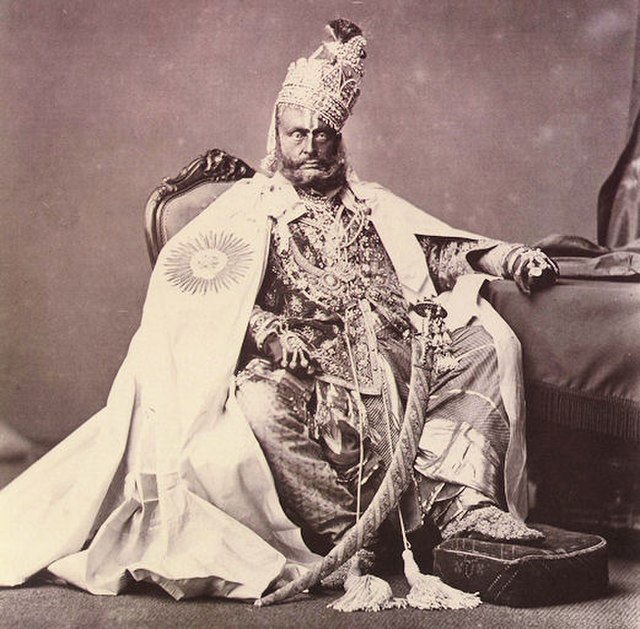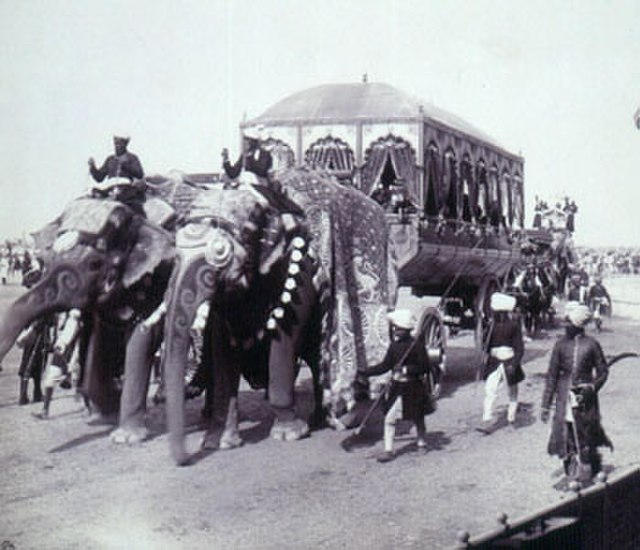Ramtanu Pandey, popularly referred to as Mian Tansen, or Sangeet Samrat, was a Hindustani classical musician. Born into a Hindu Gaur Brahmin family, he learnt and perfected his art in the northwest region of modern Madhya Pradesh. He began his career and spent most of his adult life in the court and patronage of the Hindu king of Rewa, Raja Ramchandra Singh, where Tansen's musical abilities and studies gained widespread fame. This reputation brought him to the attention of the Mughal Emperor Akbar, who sent messengers to Raja Ramchandra Singh, requesting Tansen to join the musicians at the Mughal court. Tansen did not want to go, but Raja Ramchandra Singh encouraged him to gain a wider audience and sent him along with gifts for Akbar. In 1562, at about the age of 60, the Vaishnava musician Tansen joined Akbar's court, and his performances became the subject of many court historians.
Portrait of Mian Tansen, c. 1585–90
Akbar watching as Tansen receives a lesson from Swami Haridas. Imaginary situation depicted in Mughal miniature painting (Rajasthani style, c. 1750 AD).
Tansen in Emperor Akbar's Court along with Todarmal, Abul Fazal, Faizi and Abdur Rahim Khan-i-Khana c.16th century
Modern Artist impression of Tansen
Rewa State, also known as Rewah, was a princely state of India, surrounding its eponymous capital, the town of Rewa.
The Maharaja of Rewa, Raghuraj Singh Ju Deo Bahadur in 1877
The Govindgarh palace of the Maharaja of Rewa in 1882
Elephant Carriage of the Maharaja of Rewa, Delhi Durbar of 1903.







